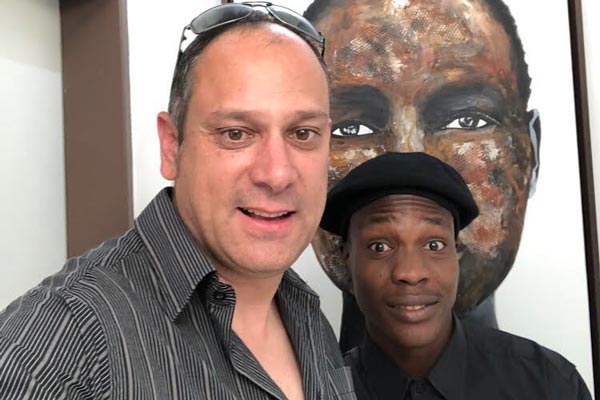

BY SHARON SIBINDI IN BULAWAYO
A Zimbabwe-born fine artist living in South Africa, Trevor Beach, has set his eyes on establishing synergies with local artistes in fronting local struggle exhibitions.
Born in Harare and raised in Bulawayo, Beach (47) moved to South Africa in his teens with his family.
He said his inspiration was drawn from an early age when he started school at St Thomas Aquinas in Bulawayo.
“I remember doing oil painting with a nun teacher, Sister Rumaldo, and I got hooked. I have always drawn or painted. I remember doing my exhibition when I was still young and once had my artworks on display at the National Library in Bulawayo,” Beach said.
“I have never exhibited in Zimbabwe as such, although I am in contact with various artists at the National Gallery of Zimbabwe in Bulawayo. My dream is to return soon to do an exhibition.
“My plan is that in the next six months I would have established relationships with some overseas galleries in London and Paris to set up exhibitions. Then in 2020, I and a fellow Zimbabwean Greatjoy Ndlovu, will be doing exhibitions in which we will be sharing the story of our different, but same journey from Zimbabwe. How we as different races — white and black — have had similar struggles as we have had to leave our beloved country in order to survive.”
Based in Johannesburg, Beach said Zimbabwe now had some of the best artists in Africa and he had worked with a few who are respectable.
- Chamisa under fire over US$120K donation
- Mavhunga puts DeMbare into Chibuku quarterfinals
- Pension funds bet on Cabora Bassa oilfields
- Councils defy govt fire tender directive
Keep Reading
“I believe Zimbabwe has among the best artists in Africa. I have worked with the likes of Greatjoy Ndlovu and George Masarira and they are truly brilliant. Art, however, requires funding and support because an artist needs to eat and live,” he said.
“South Africa has a stronger financial market and therefore the chance of an artist to succeed is higher. We also have corporate entities who are buying art as investment and this also stimulates the art industry. The major banks and investment houses are big art collectors, which is a catalyst in growing the demand and interest.”
He said visual arts paid well, but it took hard work, commitment, and success did not come overnight.
“The biggest challenge is to keep positive regardless of whether you sell art or not. Also the art industry is very fickle. If someone is on top today, that does not guarantee they will stay there. As an artist, you need to carve your own identity, something that sets you apart from all the other aspiring artists. Once you find it, stick with it and build your own brand,” he said.
“While I have been doing art for as long as I can remember from childhood it takes lots and lots of failures to become successful. I am in regular contact with a large group of Zimbabwean artists, some of whom have already done solo exhibitions here in South Africa.
“But I would love to do an exhibition in Zimbabwe and to encourage fellow artists that your country or surroundings does not determine whether you can be successful. With today’s modern technology, anyone can expose their art to the world. Zimbabweans have wonderful talent and wonderful stories to share.”
Beach said upcoming artists should not do art, for money, but for the love of art.
“Don’t do art for money [that will come by itself], but do art for the love of art,” he said.











